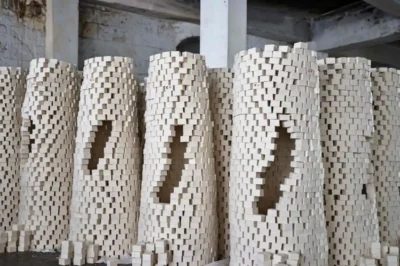At Touqan soap factory in Nablus, workers maintain a tradition of making olive oil soap for over 150 years. They start by heating olive oil, water, and lye in a furnace at dawn, recognized by UNESCO as Intangible Cultural Heritage.
Musa Assakhal, a veteran soap maker, checks the mixture’s consistency with a metal spatula at the Nablus factory. He stirs the thick liquid with a large metal blade and monitors its boiling stage to determine readiness. This traditional craft, passed down through generations, is practiced by many families at home. The Touqan factory, established in 1872, carries on this ancient tradition in Nablus.
In recent years, despite its esteemed past, the Touqan factory has faced challenges due to increased international competition and restrictions imposed by Israeli military occupation in the West Bank. These difficulties have led to staff reductions and a significant decrease in production. The situation has been further exacerbated by Israeli military actions in Nablus, making it challenging for workers to commute to work and delaying soap shipments.
The factory persists amid ongoing operations. Nael Qubbaj, Touqan’s manufacturing manager for 30 years, finds UNESCO’s recognition particularly meaningful during challenging times. He emphasizes the significance, stating that amidst political unrest and a surrounding siege, the UNESCO honor not only brings pride but also celebrates decades of dedication to soap production.
The soap-making process at Touqan involves multiple stages. Once the mixture is prepared, it is carried upstairs in metal buckets, spread out to harden. Porters then cut it into bars with thread, stacking them in towers to dry for about three months. Finally, workers hand-wrap each bar in white paper packaging with blue Arabic lettering and two red keys.
Sources News From Various Digital Platforms, Websites, Journalists, And Agencies.








Leave a Reply